Turns out, octopuses aren’t just the solo masterminds of the sea—they actually enjoy teaming up with other fish to form multi-species hunting parties.
But when things don’t go their way, octopuses have been caught slyly punching their underwater teammates as a form of disciplinary action.
Researchers of a new study have found that octopuses do not always hunt alone. Some members of the species, Octopus cyanea, forage around in hunting groups with other fish. These groups of fish can even include more than one species.
Octopuses have been spotted joining forces with other fish to lead multi-species hunting teams
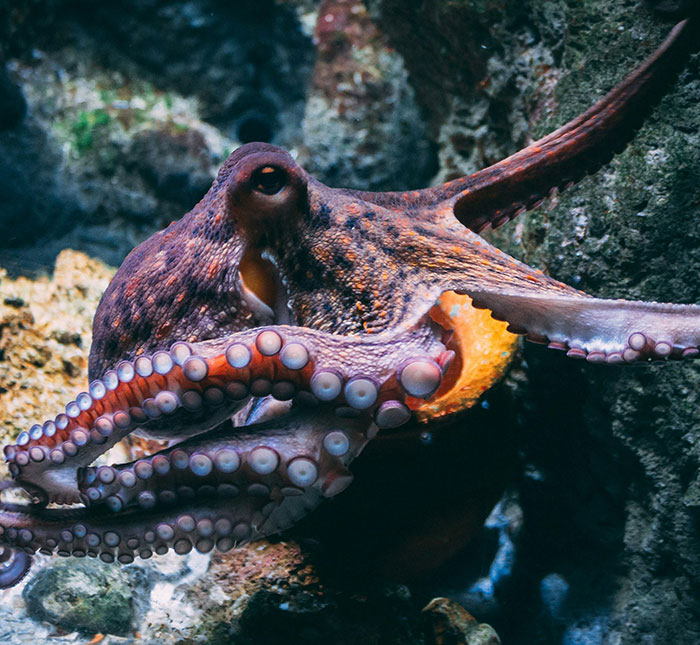
Image credits: Diane Picchiottino (not the actual photo)
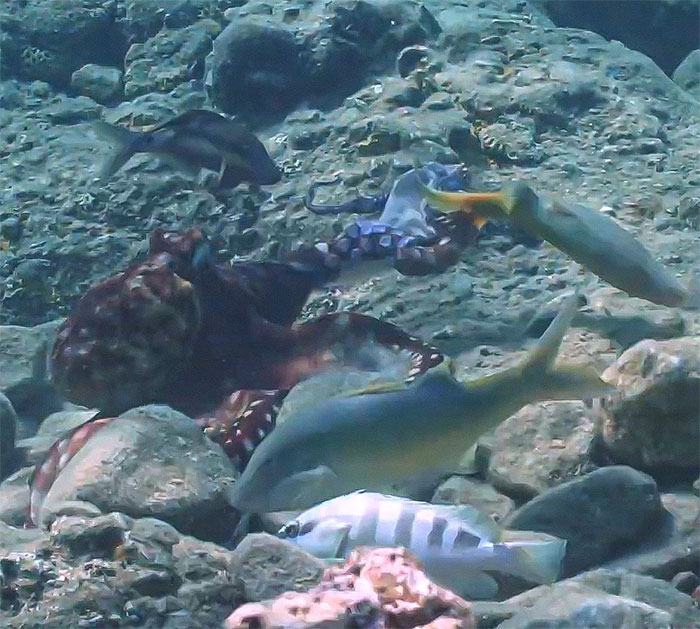
Image credits: NPG Press
“We are very similar to these animals. In terms of sentience, they are at a very close level or closer than we think toward us,” Eduardo Sampaio, a postdoctoral researcher at the Max Planck Institute of Animal Behavior and the lead author of the study, told NBC News.
When it comes to hunting in a team, the benefits are mutual: the patrolling fish alert the octopus when they locate a prey, and when the octopus flushes it out of hard-to-reach crevices, the fish are waiting to swoop in.
It’s like an underwater version of teamwork, where everyone has their role.
“This beneficial interaction enables fish to acquire otherwise unreachable prey, and octopuses to conserve energy by focusing on high-quality food sources, while exerting control and providing feedback within the group, highlighting the sophisticated dynamics of marine life collaboration,” the long-time cephalopods observer said.
“We are very similar to these animals. In terms of sentience, they are at a very close level or closer than we think toward us,” said the lead researcher of the recent study
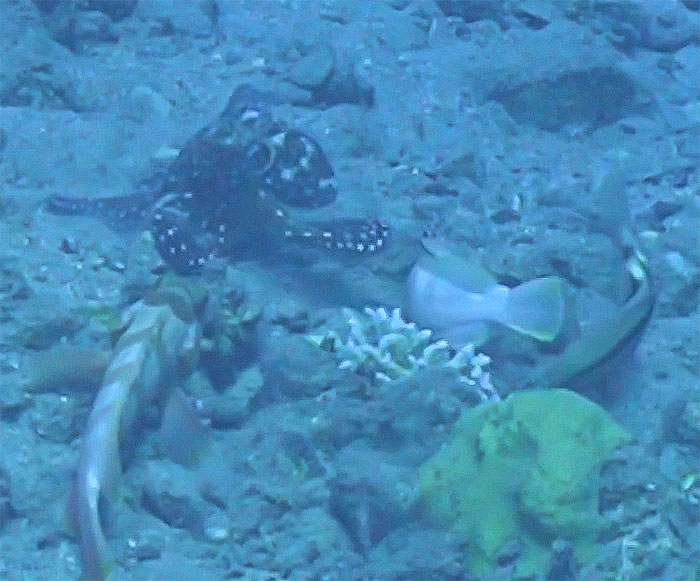
Image credits: NPG Press
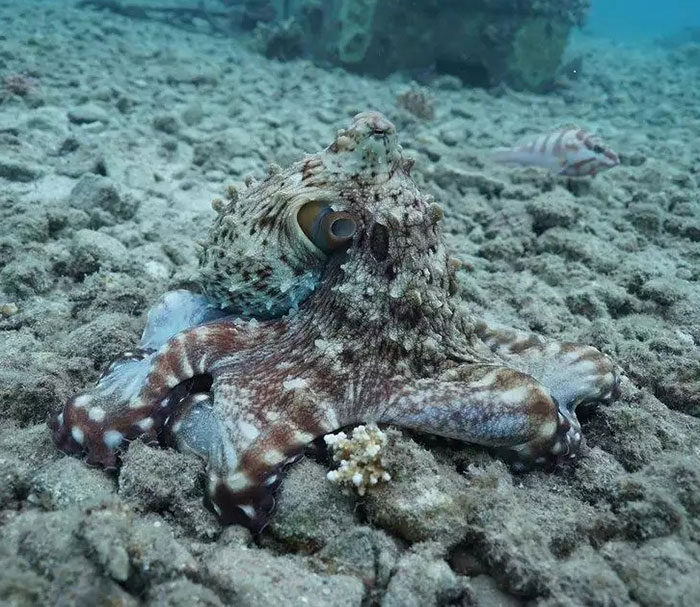
Image credits: maxplanckpress
“When the octopus catches the prey it also kills it,” he added. “One item of prey is not divided, it is taken by whoever catches the prey first! However, because the interaction between the fish and octopus repeat several times during a hunt, prey is ‘shared’ in the sense that sometimes the octopus catches the prey, and other times fish catch the prey.”
The researchers of the study came to their conclusions based on dives conducted at a reef off the coast of Eilat, Israel.
With the help of several cameras, the team tracked 13 octopuses for about 120 hours and observed them for 13 hunts.
Octopuses flush prey out of hiding spots for the fish to grab, but if a fish slacks off, the octopus has been caught on camera throwing a punch to keep the hunt on track
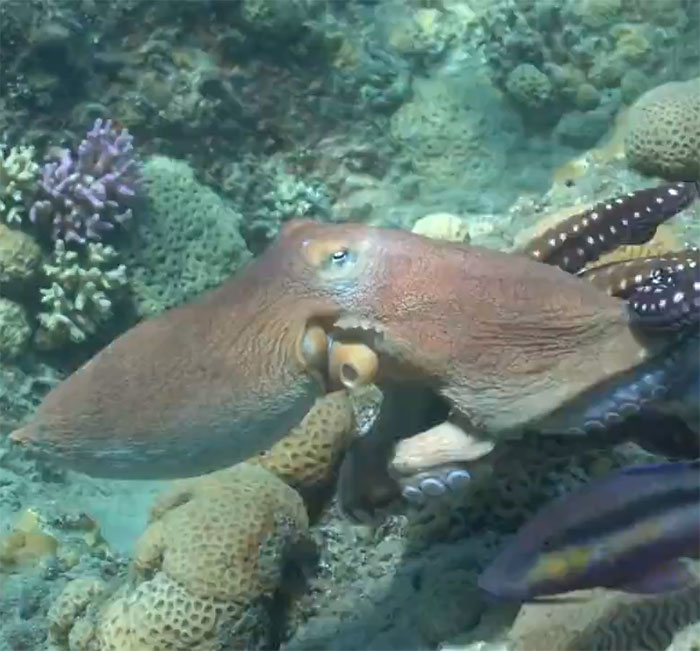
Image credits: UniKonstanz
The team noticed that each octopus would work with groups of two to 10 fish at a time. They have also captured octopuses punching their teammates when they fall out of line.
“The ones that get more punched are the main exploiters of the group. These are the ambush predators, the ones that don’t move, don’t look for prey,” Eduardo told NBC News.
Octopuses may also punch the fish to prevent them from being stuck in the same spot and also to keep the group moving.
“If the group is very still and everyone is around the octopus, it starts punching,” the researcher added, “but if the group is moving along the habitat, this means that they’re looking for prey, so the octopus is happy. It doesn’t punch anyone.”
Netizens marvelled at the intelligence displayed by octopuses and found it funny that they would discipline their lazy fish partners






















 English (US) ·
English (US) ·